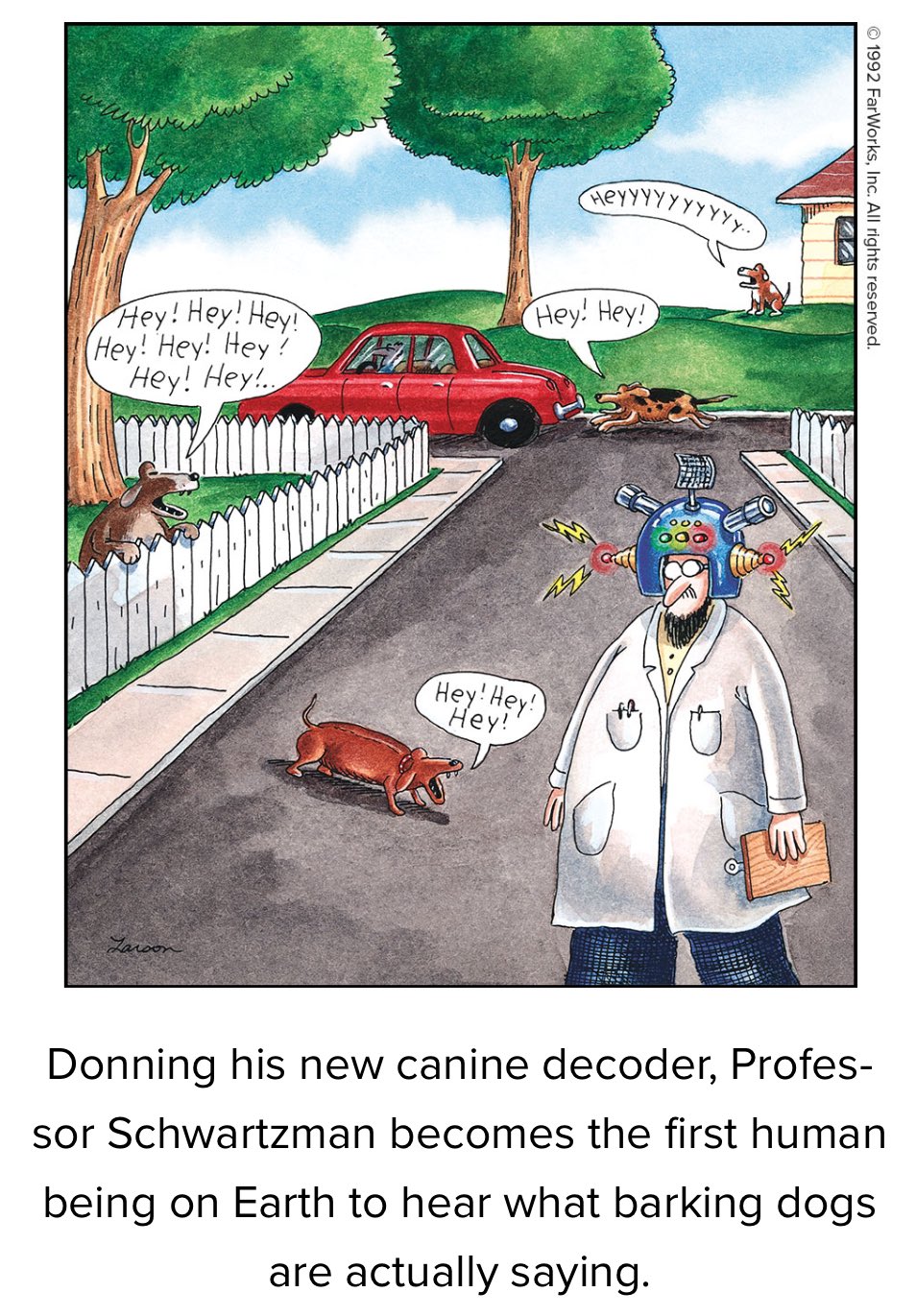- cross-posted to:
- [email protected]
- [email protected]
- cross-posted to:
- [email protected]
- [email protected]
The Coller Dolittle Challenge for Interspecies Two-Way Communication has been launched by the Jeremy Coller Foundation and Tel Aviv University. While the use of AI is not obligatory, the team say the technology can boost almost all proposals.
“Just as the Rosetta Stone unlocked the secrets of the hieroglyphics, I am convinced that the power of AI can help us to unlock interspecies conversation,” said Jeremy Coller, chair of the foundation.
The team say the idea has precedence: researchers have recently developed machine-learning algorithms to translate bat squeaks, allowing them to identify the subject of squabbles.
Other efforts in the field have included algorithms to decode the emotions of pigs from their grunts, and the squeaks of rodents to identify when they are stressed. The Earth Species Project, a California non-profit group, is also working in the area, hoping to develop a system that can be applied to all species.
…
The team behind the prize, which closes for submissions on 31 July, said the goal is to develop a system whereby animals do not realise they are actually communicating with humans – similar to the Turing test for AI, in which the goal is to create a computer system whose conversation with a human is indistinguishable from that of a real person.
…
Peter Gabriel, the musician and co-founder of Interspecies Internet, who helped to develop the concept of the prize, said: “When I played music with bonobo apes, I was stunned by their intelligence and their musicality … I’m delighted that there are serious scientists now engaged both with understanding their communication and ways through which we might begin meaningful interspecies communication.”
It would be hilarious if we finally figure this out and all our pets are like “Nah, man. I’m not that interested in talking. Just leave me alone.”
I don’t need AI to read a cat’s mind.

Bin dun.





